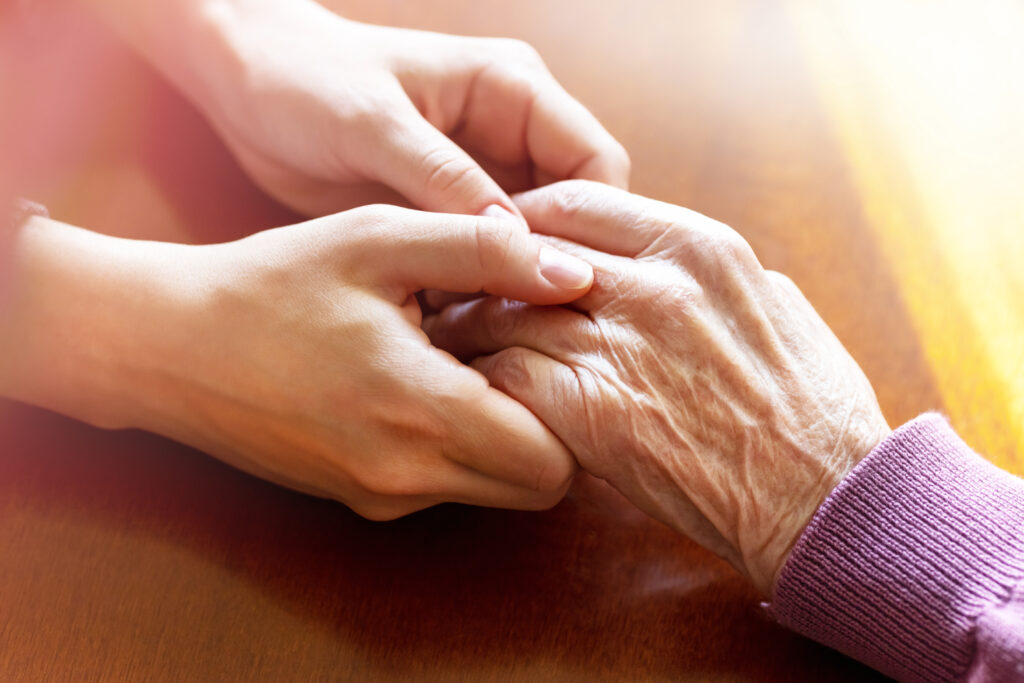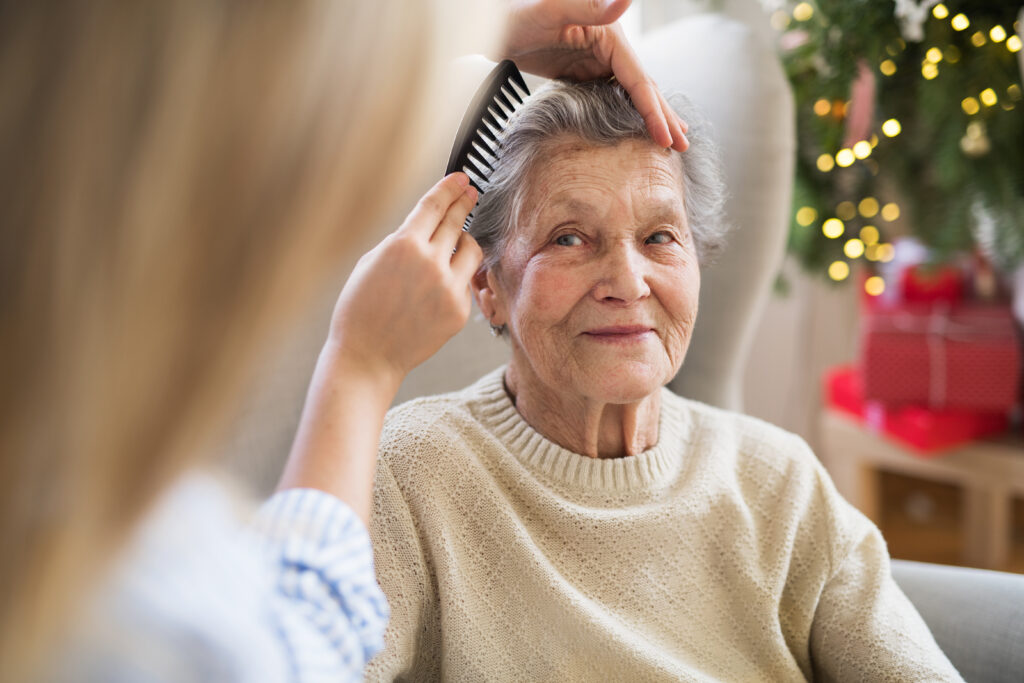Home Care in Colorado: Common Terms, How to pay for Home Care, Licensing and Questions to ask
There are many great options for Home Care in Colorado with a population of about 885,000 aging adults aged 65 years or older, which constitutes nearly 15% of the state’s overall population. This demographic finds the state appealing not only due to excellent tax exemptions but also because of the stunning outdoors that offer a wide range of activities for everyone. Additionally, Colorado promotes a healthy lifestyle for its residents by providing easy access to hikes, breathtaking waterfalls, exotic bluffs, and unique rock formations, along with a cuisine that emphasizes healthy eating. Consequently, these features attract many aging adults to Colorado.
As time passes, the challenges of aging may make living at home increasingly difficult. Typically, senior citizens prefer to age in place for as long as possible rather than move into a senior living community. When the time comes for seniors to retire or when they can no longer manage daily tasks, people often think of retirement homes or nursing homes. However, alternatives exist beyond nursing homes. Specifically, home care in Colorado is designed to meet the needs of aging adults who only require some basic assistance at home.
Furthermore, several well-known cities in Colorado provide excellent healthcare options for your loved ones. These cities include Denver, Boulder, Aspen, Fort Collins, Pueblo, Grand Junction, Colorado Springs, and many others. Thus, individuals seeking care in these areas can find numerous resources to support their loved ones’ health and well-being.

- Home Care in Colorado: Common Terms, How to pay for Home Care, Licensing and Questions to ask
- Also known as "In-Home Care"
- How do you know it may be time for care at Home?
- What Assistance do Home Care Aides Provide?
- What are the different options?
- Laws and Regulations
- How much does home care in cost?
- Questions and inquiries about home care
- Local Resources and Links – Colorado
- Search other areas for Home Care
Also known as “In-Home Care”
Home care, also known as in-home care, is particularly well-suited for seniors who may only require basic assistance at home. Importantly, care plans can be customized for each individual to address specific needs. In this context, the home aides can support various activities of daily living (ADLs), which include medication reminders, assistance with bathing, and help with eating. Moreover, home care may serve as an excellent option for family members who must leave town or simply need a break from caring for their loved one. Additionally, the home care aides bring a sense of personalization by providing companionship, socialization, and fostering a vital sense of connection.
Home Care and Aging in Place
Furthermore, in-home care services encompass assistance with activities of daily living (ADLs). Notably, these in-home aides can assist with personal care and monitoring just as residents would receive in a long-term care community. This support allows individuals to remain in the comfort of their own homes while receiving the care they need. Thus, home care not only enhances seniors’ quality of life but also helps them maintain their independence.

How do you know it may be time for care at Home?
What are the signs to look for?
Have you noticed your loved one is spending less and less time managing their hygiene or personal appearance. They may stop brushing their teeth or let their facial hair grow in an unkempt fashion when they didn’t before. Are they going longer periods of time in the same clothing, or neglecting relatively scheduled eating habits? Grooming and hygiene live under the umbrella of ADLs, and as such a Personal Care Assistant may help with these tasks.
Is your loved one forgetting things more frequently? Typically, people forget things sometimes, but if you notice they are forgetting simple tasks they normally perform regularly, this may be a a sign that assistance is necessary.
It is not uncommon for elderly adults to experience trouble walking, getting up from a seated position or need help getting in and out of bed. Signs like this can be dangerous. The risk of a fall increases as mobility declines. The aide of a home care caregiver may assist with moving around the house safely.
Did you notice your loved one’s home is in disarray? Have they usually shown signs of tidiness or regular cleanliness, and now the home is disheveled and dirty. In Home Aides may assist in normal household maintenance like dusting and sweeping, cleaning the kitchen or doing laundry.
What Assistance do Home Care Aides Provide?
Home Care Aides provide a variety of services and assistance. Depending on the individuals condition, elderly adults may require different types of care.
Services included in home care:
- Companionship
- Socialization
- Cognitive stimulation
- Medication reminders
- Grocery shopping
- Transportation
- Respite for family caregivers

Often times, people think of nursing homes or retirement homes as the only places for senior care. As we’ve discussed earlier, there are multiple care options. And even within home care, there are levels of care suited for an individuals needs. The specific services offered in home care will vary state by state.
What are the different options?
The Various Care Services and Options
Personal Care Assistant
A personal care assistant offers companionship as well as assistance with activities of daily living, which include non-medical personal care tasks such as toileting, dressing, grooming, and bathing. Moreover, they can help with grocery shopping and meal preparation, ensuring that the individual maintains a healthy lifestyle.
In addition, a personal care assistant can also provide support during family difficulties. For instance, if a family caregiver must leave town or be away from the home overnight, the caretaker can stay with the individual to monitor and assist as needed. Furthermore, if a spouse is too heavy for the individual to manage alone, a personal assistant can serve as a great asset in helping them move safely without the risk of injury.
It is important to note that these care assistants cannot perform any medical care, as their focus remains on personal and non-medical support.
Companion Care
Similarly, companions spend valuable time with older adults by providing companionship, which is especially relevant for individuals who live alone or do not leave the house due to cognitive impairments or frailty. In this capacity, these companions are present to look after the person, keeping a watchful eye, and acting as an extension of the individual to assist with mobility and general physical functions.
Moreover, they may drive the person to appointments and prepare light meals and snacks. Additionally, these companions may engage in enjoyable activities such as playing games, reading, or listening to music together.
Overall, companion care serves as an excellent way to bring social interaction and assistance to individuals who may otherwise spend long periods of time alone. Thus, this type of care enhances both the well-being and quality of life for seniors.


Laws and Regulations
Licensing and regulations are thoroughly overseen by the Colorado Department of Health Care Policy and Financing. This oversight ensures that agencies meet necessary standards for quality care.
Grievances:
Furthermore, each agency should have a clear plan in place for families to voice any grievances or complaints. Importantly, the person receiving care possesses extensive rights pertaining to the services provided.
Specifically, the individual under care has the right to file a complaint with the agency regarding the following issues:
- Their treatment and the care provided.
- The agency’s failure to deliver specific necessary care.
- The lack of respect for their property and/or person.
In addition, individuals have the right to participate in discussions about their care, be informed about their treatment options, and consent to or refuse care both in advance of and during treatment. Thus, these rights empower individuals and ensure that they receive the quality care they deserve.
How much does home care in cost?
The cost of home care (in home care) in Colorado is well above the national average. In home care in Colorado, on average costs $6,400 per month. That is is much more than the national average ($4,900 per month). The neighboring states are all less expensive as well.
Average costs per month, Colorado and surrounding states:
- Colorado: $6,400
- New Mexico: $4,625
- Arizona: $5,450
- Utah: $5,650
The cost for in home care varies within the state of Colorado as well.
- Denver: $6,800
- Boulder: $6,800
- Pueblo: $5,300
- Grand Junction: $5,450
- Colorado Springs: $5,775
Questions and inquiries about home care
Agency Information
- Is the agency RN operated?
- Is the agency a franchise or locally owned and operated?
- Is the agency licensed by WA State Department of Health?
- Is the agency licensed for both home care and home health?
- Does the agency have liability insurance?
- Can the agency respond to you 24/7?
Caregiver Information
- Are employees licensed, bonded & insured? Or are they independent contractors?
- Does the agency test skills, conduct behavioral interviews and verify caregiver credentials?
- Are caregivers required to have current certifications for First Aid, CPR, and TB?
- Are caregivers provided continuing education/training?
- Can authorized individuals monitor care and make requests online in real time?
- Does the agency offer caregiver replacement when the “fit” may not be right?
Documentation and Supervision
- Does an RN/MSW/Care Manager conduct a free home care assessment?
- Does an RN/MSW/Care Manager create a home care plan?
- Does an RN/MSW/Care Manager supervise the caregivers?
- Do caregivers receive client orientation before arriving at a client’s home?
Policies and Cost
- Can services be cancelled with a 4-hour notification?
- Does the agency offer flexible scheduling, custom care plans, and a continuum of care?
- Does the agency have weekly or monthly minimums?
- What is the hourly minimum per shift?
- Does the agency offer home care discounts?
- What is the required deposit?
- Will the agency accept long-term care insurance?
Local Resources and Links – Colorado
Area Agency on Aging Boulder County offers services to adults 60 and over and their adult caregivers. They also provide assistance to Medicare beneficiaries and residents of any age who live in a long-term care facility. Provides information, referral, and options counseling to anyone 18 or older with a disability as well as to older adults through the Aging and Disability Resource for Colorado program. Legal assistance is offered via one of our contractors, not directly.
Denver Regional Council of Governments Provides information and assistance for people 60 and older or 18-plus with a disability, their families, and service providers. Referrals to local resources and services.
Larimer County Office on Aging The Larimer County Office on Aging LCOA provides Information and Referral through the ADRC, Title III services including In Home Services Voucher, Chore Voucher, Respite Voucher, application assistance and options counseling. Additional services include grant management and long term care ombudsman program community education and key member of the Partnership for Age Friendly Communities in Larimer County.
Park County Department of Human Services Adult Protection Services (APS) are provided to at-risk adults age 18 and older who, due to age or disability, are unable to protect themselves and have no one to advocate on their behalf. The Adult Protection program responds to reports of Abuse (physical or sexual), Neglect (caregiver or self), and Financial Exploitation.
Pikes Peak Area Council of Governments PPACG serves as the Area Agency on Aging for Colorado Springs and provides programs and services for older adults and their caregivers. A person must be 60 years of age or older to be eligible for a service provided by the Older Americans Act (OAA).
Disability Law Colorado offers legal representation, information and referrals to people with disabilities, older people, and their families.
Eldercare Locator This is a great resource to search for specific care in specific counties and cities. This database is a nationwide resource that connects older Americans and their caregivers with trustworthy local support resources. Connect with services such as meals, home care or transportation, or a caregiver education or respite from caregiving responsibilities. The Eldercare Locator is a public service of the Administration on Aging (AoA), an agency of the U.S. Administration for Community Living.
Medicare provides a search feature to find & compare providers near you, most senior housing and care providers are included on CareAvailability.com. Find & compare plans in your area. Determine if you qualify for premium savings
Medicaid offers information on how to apply for Medicaid, eligibility criteria, links to local state offices, and additional resources
The Alzheimer’s Association is the leading voluntary health organization in Alzheimer’s care, support, and research. Whether you are living with Alzheimer’s or caring for someone with the disease, information and resources are available.
Search other areas for Home Care
Not finding what you’re looking for? Take a look below.
